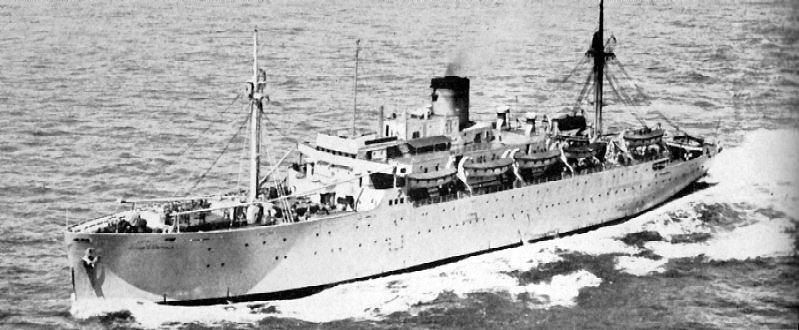
Our little home aboard ship was in Hole 4. The first night wasn’t so bad, and we slept very well only to be awakened at 6:00 A.M. for chow. Once chow had been finished we strolled around a bit getting accustomed to the place and what advantages it had to offer. During our tour, which led to the deck, we met our officers, who knew as little as we did about things to come aboard ship.
While docked, all wondering when we were shoving off, we noticed a boat load of WAC’s, something like 5,000 of them, we heard. This gave the whole outfit the idea that Lt. Pearson could have made better arrangements for the 13th Finance Section. Apparently there was nothing we could do about it at this late date, and we made the best of it. However, we did have a few nurses aboard to furnish feminine atmosphere, but this didn’t help the enlisted man very much, for everyone knows the relationships between EM and officers.
While there in the harbor we saw boat loads after boat loads of troops heading our way. It was an extremely large convoy leaving New York, and we later found out it was to split up and part to go to England. What a place that would have been. We were hoping our boat would follow such a course.
We started moving seaward at approximately 11:30 A.M., August 21st. All the fellows were on deck getting their last look at the U.S. This movement carried us through the submarine netting there in the harbor, and it was possibly the first time a lot of us had seen such things. The last sight of land was the New Jersey coast while passing through the Narrows.
Once we had passed through the submarine netting we were on the high seas, and had entered a zone of war operations. This is where a lot of the boys began to feel woozy, and this not from alcohol. Of our little group we had only two to get seasick, those being the Major and Sgt. Davis. The funny part of it is that Davis claims he wasn’t seasick, however, the boys don’t believe his story. Although, many of the boys didn’t get seasick, they had something else which was terrific, and which doesn’t have to be explained for all of us know what I have in mind.
Our quarters were just outside of the mess hall. This place became as hot and stuffy from the heat as hades ever dared be. We got a good bit of relief from this, for we were able to stay on desk quite a bit, and take advantage of those swell ocean breezes. However, at dusk came those horrifying words, “Blackout all ships; close all ports and baffle doors, all troops not quartered on desk will go below. There will be no smoking on desk after this announcement.” This lead to a very restless and tiresome night, only awaiting the break of dawn.
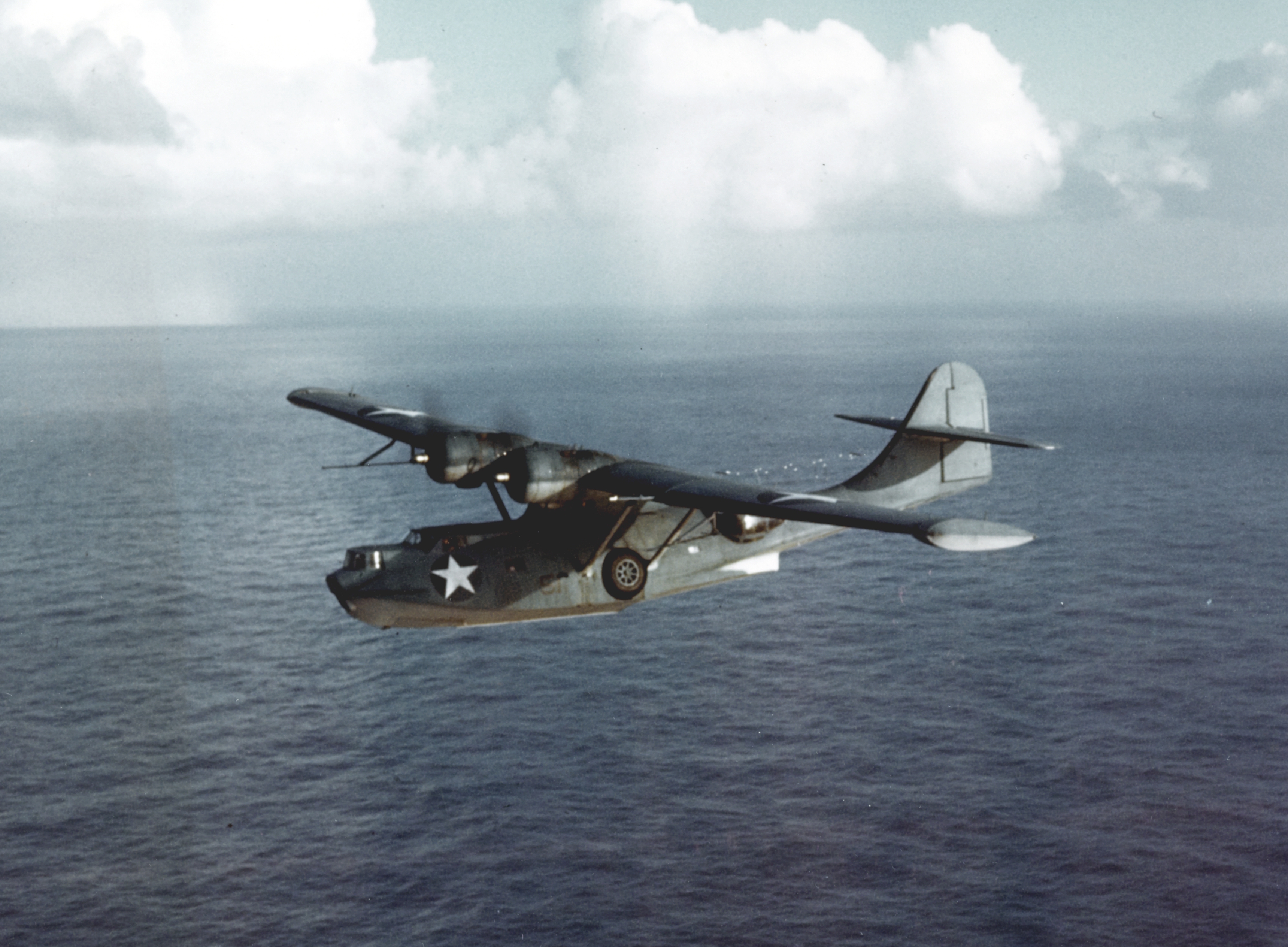
At night could be seen the usual gems of Casino (draw Casino, five card Casino and Stud Casino), a game of dice not dissimilar to Parcheesi, and in the hot mess hall, where you ate one pound and lost two, bingo games. Some of the fellows did all right for themselves.
Chow aboard ship was served twice daily, at 6:00 and 4:00. It wasn’t the best in the world, and we all believe it was the source of a lot of trouble. Our mess call was “Chow is down for the troops”.
Life aboard ship was much the same, day in and day out. The monotony of it all was broken up somewhat by various Church services, boxing bouts, a movie, and a variety show put on by the nurses. We also had a lounge where one could read and write, if he was fortunate enough to find an unoccupied chair.
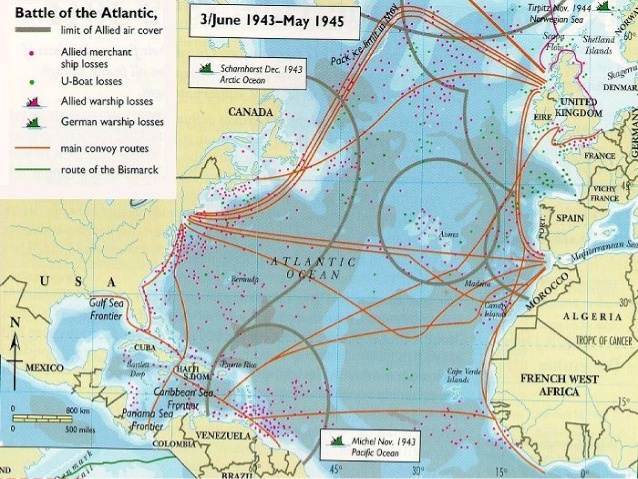
[For additional information on the convoys see here]
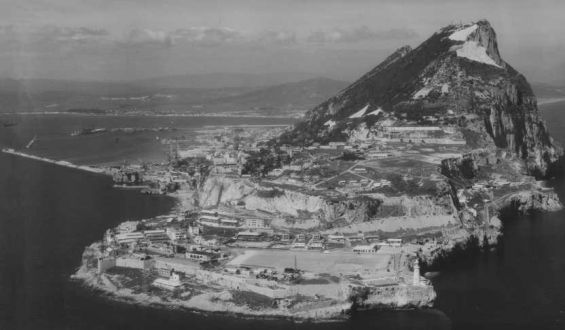
Looking at the various vessels file through this narrow passageway was truly one beautiful sight, and one long to be remembered by all. Our journey continued and we put in port at Oran, Algeria on September 2nd 1943 at about 3:00 pm Greenwich Time, for our watches had been changed some five hours during the course of travel, thus completing our fourteen day journey aboard the U.S. Army Transport “George Goethals”.
The balance of the ships not putting into this port there proceeded on and where they landed no one knows.
During our little voyage became the job of taking those darn atabrine [anti-malaria] tablets. We were still taking them, and I guess will be for the duration. All the boys are not worrying about the six months – it’s the duration that bothers us.
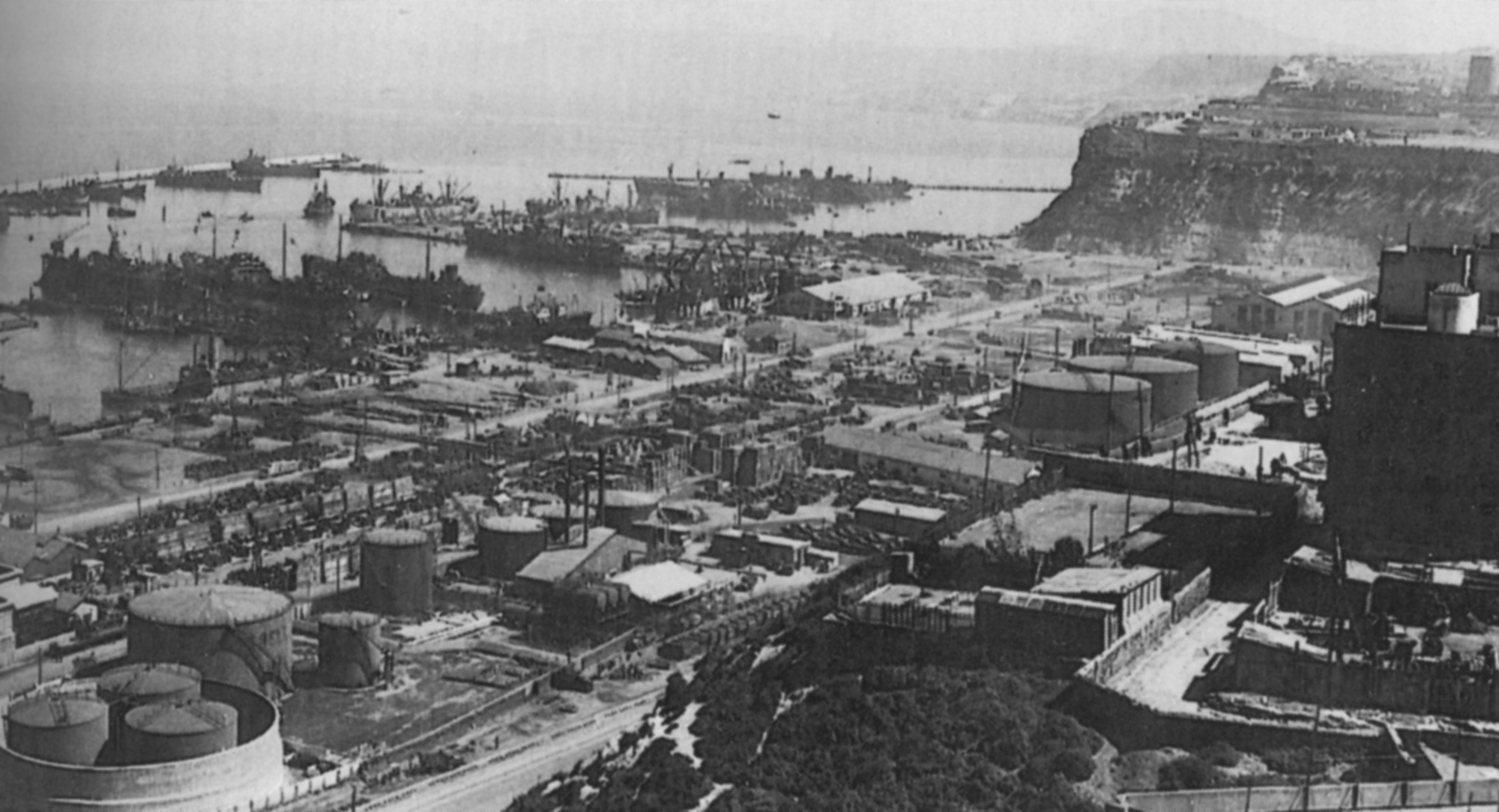
Once off the boat we were loaded into a truck taking us to our bivouac area, that is, all but four – Mansfield, Muir, Aldrich and Kushner, who had been placed on the baggage detail. These boys caught up with us the next day. They were all black, for they had slept in a coal pile the night before. Our baggage arrived in fair shape, but someone had conveniently lifted all our candy. We hope they choked over it.
As our travels proceeded from the docks, we had to go up the long hill to the city itself. From the truck we could look out over the Blue Mediterranean and see the convoy proceeding to the docks. Indeed, it was a beautiful sight. Our movement continued on through the suburban area and the sights weren’t too pleasing to the eye. We finally reached the bivouac area at Canastel, and were quartered (?) at the 31st Replacement Bn [Battalion]. The place was later referred to repeatedly as “That pestilence ridden hole”, instead of our little home.
We spent about two weeks there and most of us will admit that it was the worst place we had ever been. We had very little water there, and to keep clean was an impossibility.
During the first few days, we didn’t know the score, for we hadn’t seen the officers since our arrival. We thought for a time that they had run out on us, for all kinds of rumors were available.
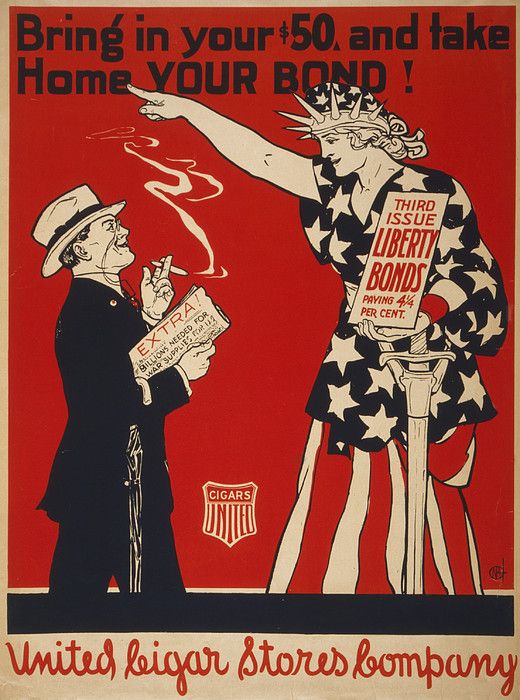
As soon as the work was completed we again saw Lt. Pearson, who started a little training program. It began the next morning and consisted of close order drills, calisthenics and hiking. We got along all right until we began walking a quarter mile and running a quarter mile up and down hill. Can’t say it met with the approval of all, and it really got some of the fellows down. The humor of it all was the Arab children saying, “Joe, got cigarette, choon gum, bon-bons”. The hiking was an everyday thing, but our afternoons were supposed to be taken up by Technical Training, so we were kept off the rock pile.
During our training period Lt. Pearson arranged for passes so all of the fellows could visit Oran. It was bumming in and bumming out, or walk. They were successful at the old American custom, and saw quite a bit of the place. After a while, however, everything lost interest with the exception of the A.R.C. [American Red Cross]. There eyes also caught the Arab race, which as you know have very peculiar customs, and saw quite a bit of the French and Spanish, too. In fact, all races could be seen. They seemed to have a good time, but since it was so much different from the cities of the U.S.A. all things didn’t agree. [Information about the American Red Cross in Algeria]
While we were doing the hiking Mr. Beerman joined in with us. One afternoon he insisted on swimming in the Blue Mediterranean. This carried us right though the town of Canastel, a summer resort before the war. To get to the sea we had to pass the house where the Duke of Windsor met Wally Simpson, and there was a hill something like 700 feet high to descend to the beach. It wasn’t bad going down, and the water was very pleasant, but OH! don't mention that climb up again. You could go down in five minutes, but it would take twenty-five or thirty-five minutes to come back up. The cliff was hard on us all (Infantry included). Once you reached the top you were all worn out, and the remark of us all was “never again.” So much for swimming.
It was here we saw our second lot of Italian prisoners of war, for we had seen others at Camp Atterbury. Their job was doing kitchen police [mess duty] and other manual work in general. They were still there when Italy capitulated, and the remarks made by the prisoners were “No more K.P.” accompanied with much jumping around.
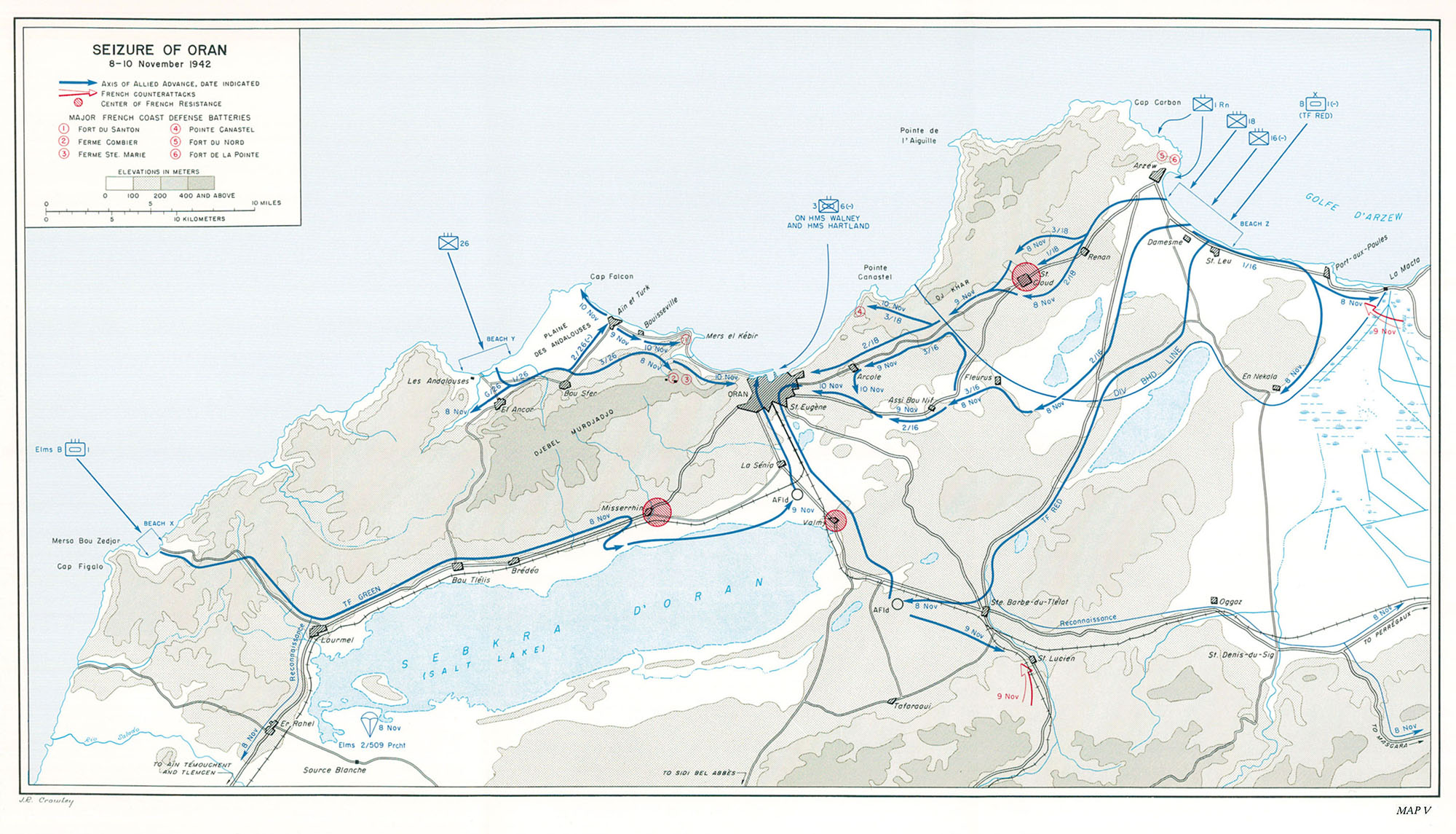
The worst thing we had to contend with was the unusual “Retreat” ceremonies. Each afternoon a dress parade was held. This meant clean suntans, no leggings, marching a half mile to the grounds and waiting in the sun for the ceremony to take place. We were certainly happy when the day of departure came.
Have a poem at hand that Yours Truly thinks will further explan the country side around Oran. Here it is –
Oran Lament
1. Somewhere near Oran,
Where the sun is like a curse,
And each day is usually followed,
By another slightly worse;
Where the brick red dust blows thicker
Than the shifting desert sands;
Where a Yank man dreams and wishes
For greener, fairer lands.
2. Somewhere near Oran,
Where women are never seen;
Where the sky is never cloudy
And the grass is never green;
Where the jackal’s nightly howl
Robs a man of blessed sleep;
Where there isn’t any whisky,
And the beer is never cheap.
3. Somewhere near Oran,
Where the mail is always late;
Where a Christmas card in April
Is considered up-to-date;
Where we never have a pay-day,
And we never have a cent,
But we never miss the money,
Because we never have it spent.
4. Somewhere near Oran,
Where the snakes and lizards play;
Where a thousand more flies
Replace the ones you slay,
Please, take me to my home town,
And let me hear a church bell;
For this God-forsaken outpost
Is a substitute for ..
By Pvt. Lester O. Hyle
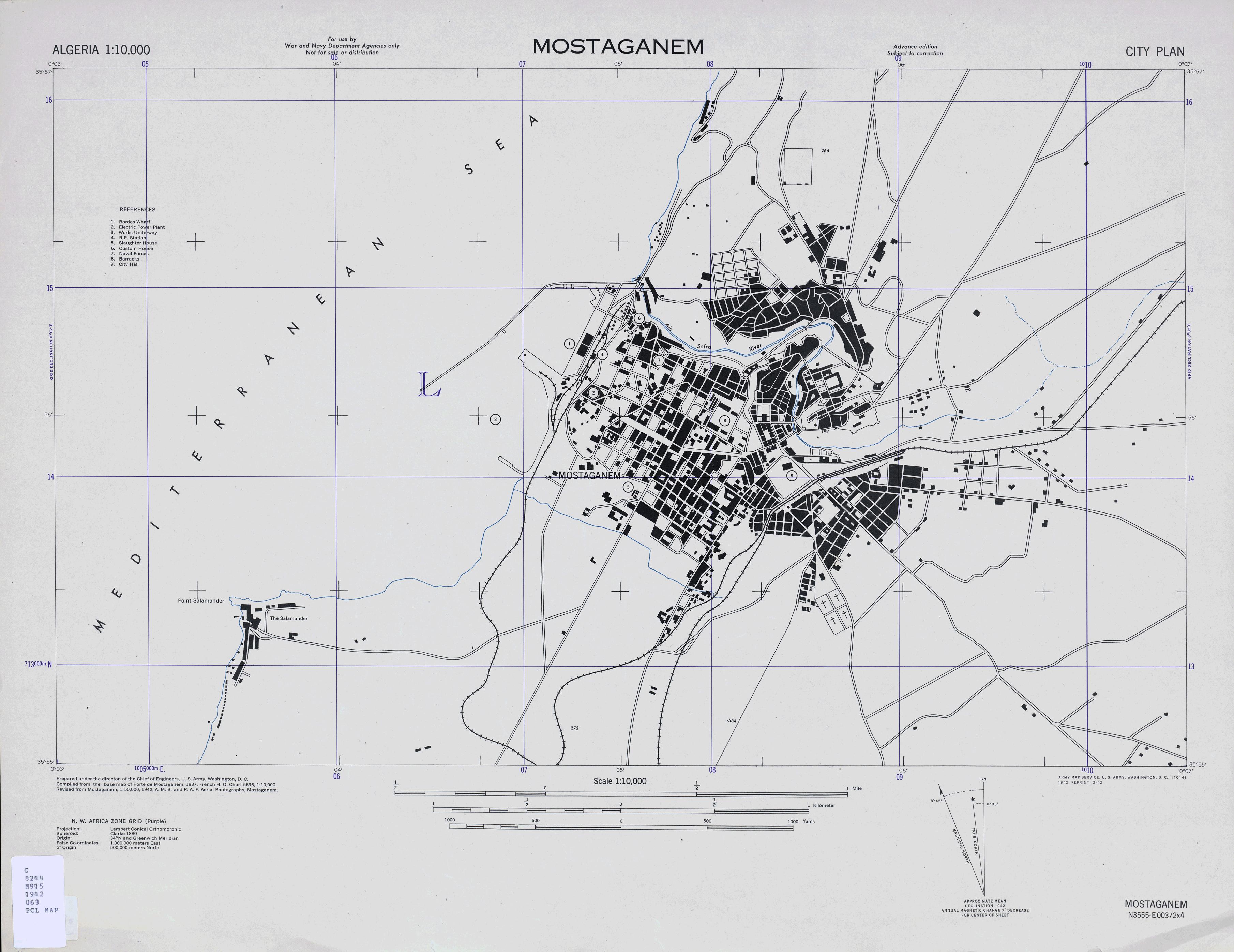
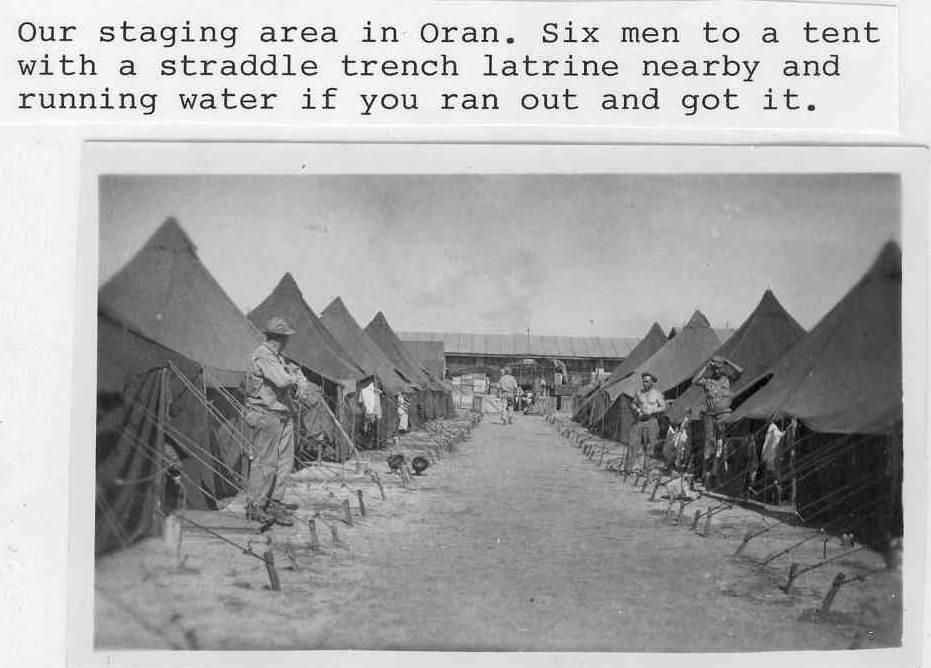
During our short stay we got an eyeful of the “Black Market”. G.I.s were selling anything they could get their hands on and cleaning up big profits too.
After chow it began to rain a little and all were preparing their beds. It continued to rain harder and harder until the water began coming into the tents. A combination of spoons and helmets came in for some impromptu use as entrenching tools and were responsible for averting a catastrophe in most of the tents, before morning. It was still raining and now coming down in torrents. The little ditch around our tent broke loose and it ran over. We were completely flooded. After this we made a scramble to get things in a dry place. This done, our attentions were forthwith focused on the problem of diverting the inundation to less destructive channels. Our efforts were a complete success. Later in the afternoon we heard from our officers, who had arranged for our removal to the grounds of the College Communal. Here we were placed in a hut, which had been a Finance Office, and which was in actuality one of the Army’s famed Arctic huts.
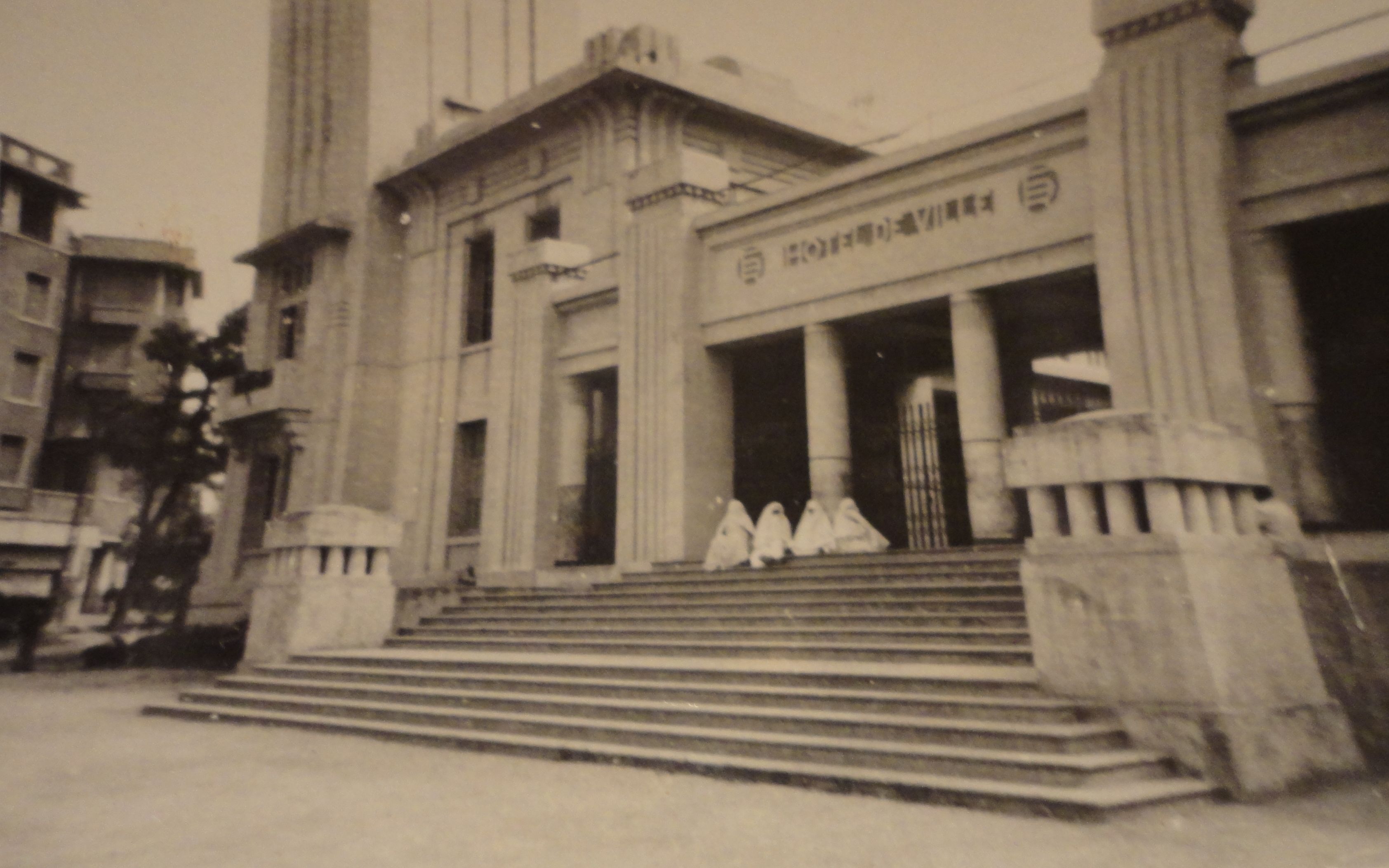
As in Oran all the fellows had as their No. 1. spot the A.R.C. The reason I’m sure was the tasty sandwiches and doughnuts which could be purchased for 2 francs. During our stay several of the fellows and Mr. Beerman attended the show “This Is The Army”, starring Stirling Holloway. It was held at the Navy open-air theater and proved to be better than any show we had seen on previous occasions.
Life went on as described above until the day of our departure from Mostaganem, on the 28th of September. This is the day we thought we were kissing Africa good-bye and no one was sorry. Instead we had to sit in the harbor of Oran for two days. Our boat was the Elizabeth C. Stanton, a U.S. Naval Transport. During this time we saw a movie each night.
Find out about Hank's training: Training in the USA
Read about Hank's exploits in Italy
View some of Hank's photos from his time abroad in the gallery